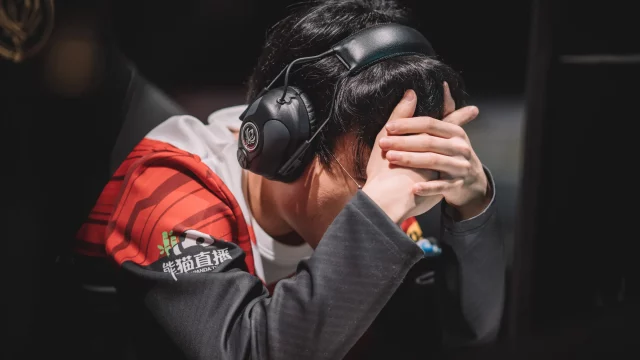Presented by BetterHelp.
Your mother warned you years ago that all those hours of gaming were bad for you – but she might have been wrong. Or at least incomplete in her assessment. In fact, mental health professionals and researchers today are intrigued by the idea that commercial video games may have a positive effect on overall mental health and well-being. With the global rise of mental health issues like anxiety and depression, particularly coming out of the COVID-19 pandemic, gaming may represent a powerful, widely available, and affordable way to help manage mental health.
Table of Contents
What Are the Mental Health Benefits of Gaming?
Some research has indicated that playing video games may be associated with cognitive benefits among those who play regularly – like cognitive flexibility, information processing, and attention control. Plus – there’s some indication that playing video games shows early promise as an inexpensive, accessible, widely available, effective, and stigma-free way to address symptoms of some mental health issues, including schizophrenia, anxiety, and depression, in the absence of, or in addition to, traditional therapy and treatments. Some research supports the fact that, in addition to cognitive benefits, gamers may enjoy social, motivational, and emotional benefits – including enhancing skills like social cooperation and rapport-building.
So think about that for a moment – playing video games could come alongside traditional mental health approaches, like self-care interventions, meditation, diet and exercise changes, and talk therapy, including online therapy, to help manage mental health issues. And for populations for whom traditional treatments aren’t widely available, gaming may provide at least a stopgap measure.
Digital Applications for Mental Health Treatment
The potential of gaming to support mental health shouldn’t actually be all that surprising. Mental healthcare professionals have long recognized that the digital landscape provides a tremendous opportunity for new and innovative ways to provide care. In fact, several mental health-focused apps and games have been developed to support clinical treatment. The drawback is that they’ve been accessible mostly through a counselor or therapist and are not widely available to the general public. Hence, the interest in commercially available video games and how they might be used to support mental health. Research tells us that up to 97 percent of children and youth in the United States play video games for at least an hour a day, making them a nearly ubiquitous option for tapping into mental health support.
Let’s take a look at the potential for gaming to ease symptoms of two common mental health conditions: anxiety and depression.
Gaming’s Effects on Anxiety
There may be a positive link between gaming and reduced symptoms associated with several different anxiety disorders, including generalized anxiety disorder, social anxiety, separation anxiety, and anxiety-related phobias. If you think about it, it makes sense – the total focus and concentration required to play a complex video game occupy the brain, leaving it little room for dangerous or counterproductive thought loops, catastrophizing or general worry. When we enter the fantasy world of a video game, we can set aside our real-life worries for a bit and concentrate on the challenges presented by the game.
These positive effects have been connected with action games, some augmented reality games, action-adventure games, and more. And the effects have been fairly consistent across a variety of gaming platforms, including PCs, smartphones, and virtual reality systems.
Gaming’s Effects on Depression
You might think of core symptoms associated with depression as low mood, loss of interest in activities, and inability to take pleasure in previously enjoyed activities. While these are some of the more commonly known symptoms associated with depression, those experiencing depression often also exhibit reduced inhibition, a tendency to overthink, a lack of cognitive control, and an inability to disconnect themselves from negative stimuli in their environment.
Some studies indicate that gaming can help. By providing a focus point and, to some extent, a distraction from “real life,” gaming also can build confidence, feelings of social connection and even joy. Once again, the focus required to be successful at the game forces our brains out of the negative thought patterns associated with depression. In addition, researchers have named specific video games such as Minecraft and Animal Crossing: New Horizons as having the potential for easing loneliness and encouraging social interaction and connection – both of which have been shown to ease symptoms associated with depression.
The Takeaway
Video games aren’t a magical solution to serious mental health issues – but there is some promising research to show that the right kinds of video games can have positive effects for some people. And what is the right kind of video game? Ideally, it’s one that challenges you, but with challenges that can be overcome, which in turn builds confidence. There’s no one “right” game that will help ease everyone’s mental health challenges, but when you find a video game that works for you, we think you’ll know it. And we hope you’ll stick with it when you do.








